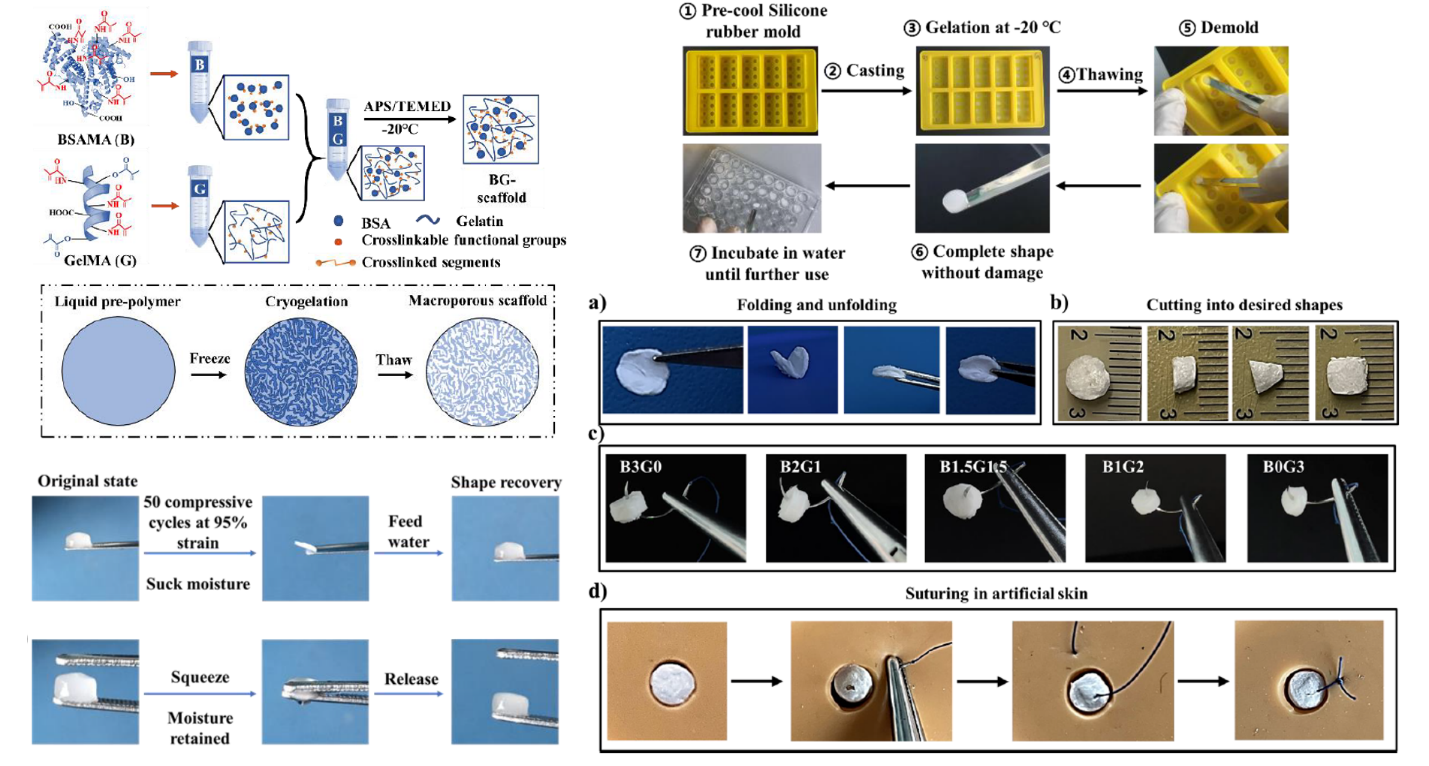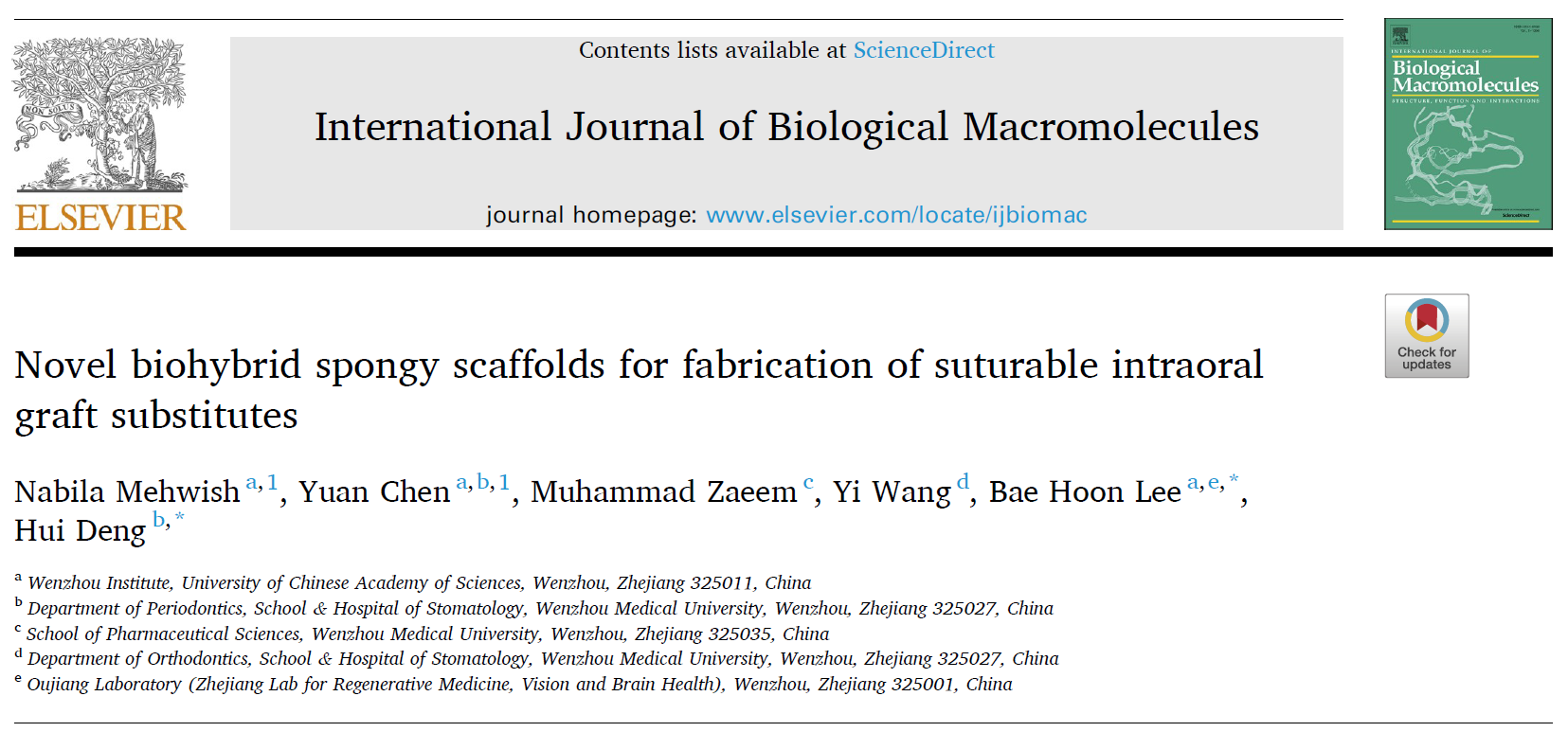- Newsroom
- Research Progress
- Academic Events
- Join Us
Novel biohybrid spongy scaffolds for fabrication of suturable intraoral graft substitutes
2022-06-30

Sufficient intraoral gingival tissues around natural teeth or dental implants help to protect underlying alveolar bone. At present, the classic treatment to augment inadequate gingival tissues is the application of autologous connective tissues from the patients’ palates.
Oral cavity offers unique environment in human body, thus the implanted subepithelial scaffolds would be subjected to dynamic forces when people are speaking, masticating and swallowing. Therefore, this study aims to fabricate biohybrid gelatin methacryloyl (GelMA) and bovine serum albumin methacryloyl (BSAMA) scaffolds via economic and simple cryogelation technique. The introduction of BSAMA provided higher interconnective porosity, kept inner structures from collapsing when suffering cyclic axial compression (strain of 95%) and nonaxial force loading, facilitated fast shape recovery and enabled cells to proliferate and migrate into such stable scaffolds. In further handling experiments, the prepared scaffolds can be repeatedly folded or cut into any shape to fit the defective area, and no cracks could be observed during subsequent needle piercing and suturing tests. Above findings suggest that such scaffold has promising value in intraoral surgery.
This article is published online in International Journal of Biological Macromolecules (IF: 8.025),WIUCAS and School & Hospital of Stomatology, Wenzhou Medical University are co-corresponding affiliations (DOI: 10.1016/j.ijbiomac.2022.06.125).
This work was supported by Wenzhou Institute, University of Chinese Academy of Sciences, Zhejiang Provincial Public Welfare Technology Applied Research Project and Public Welfare Science and Technology Plan of Wenzhou.

https://www.sciencedirect.com/science/article/abs/pii/S0141813022013393#!